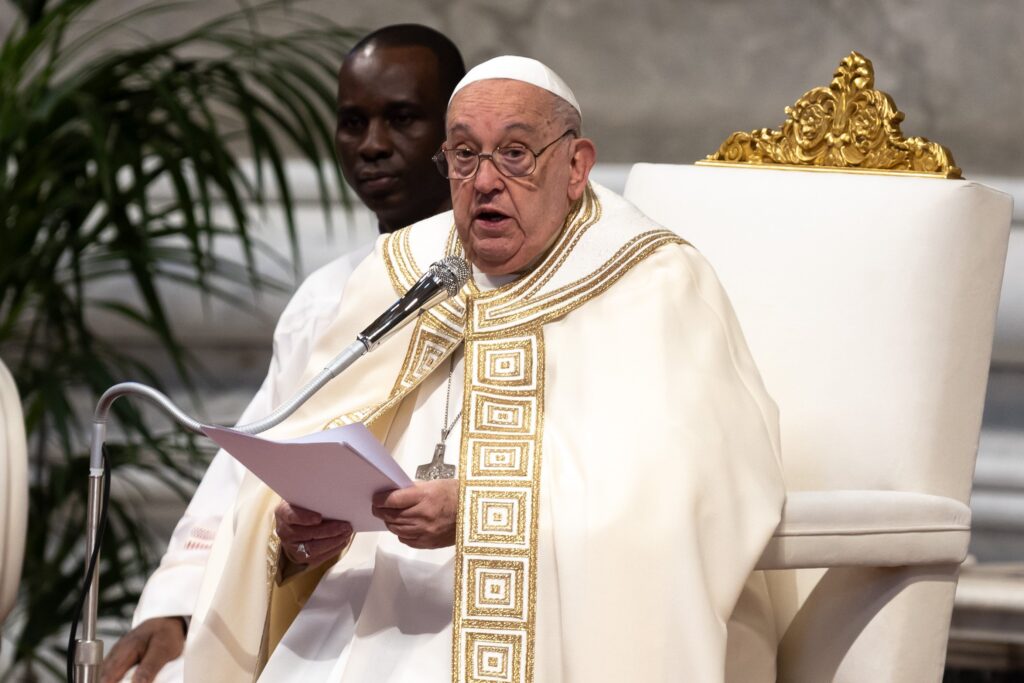
Final Synod Document Is Magisterial, Must Be Accepted, Pope Says
By: Our Sunday Visitor
The conclusion of the general assembly of the Synod of Bishops “does not end the synodal process,” Pope Francis wrote

VATICAN CITY (CNS) — Doubling down on the centrality of synodality in the Catholic Church, Pope Francis said that it is now up to local churches to accept and implement proposals from the final document approved by the Synod of Bishops on synodality.
Approved by the pope, the synod’s final document “participates in the ordinary magisterium of the successor of Peter, and as such, I ask that it be accepted,” the pope wrote in a note published by the Vatican November 25.
“Local churches and groupings of churches are now called upon to implement, in different contexts, the authoritative indications contained in the document, through the processes of discernment and decision-making provided by law and by the document itself,” he wrote nearly a month after the synod’s close.
The final document outlined key priorities for the church, including increased participation of laity through new ministries and adjusted governing structures, greater transparency and accountability among church leadership and creating space for previously marginalized groups.
After synod members voted to approve the final document, Pope Francis announced that he would not write the customary apostolic exhortation after the synod but would instead offer the document to the entire church for implementation.
With the exceptions of the first synods convoked by St. Paul VI in 1967 and 1971, all ordinary assemblies of the Synod of Bishops have been followed by an exhortation on the synod’s themes and discussions by the pope.
In his note, Pope Francis clarified that while the document is “not strictly normative” and must be adapted to contexts where it is applied, it still obligates “local churches to make choices consistent with what was indicated” in the document.
He also underscored the need for time to address broader churchwide issues, such as those assigned to the 10 study groups he set up in the spring to explore issues raised during the synod, including women’s ministry, seminary education, relationships between bishops and religious communities, and the role of nuncios. More groups may be created, the pope said.
The conclusion of the general assembly of the Synod of Bishops “does not end the synodal process,” he wrote.
Quoting his 2016 exhortation, “Amoris Laetitia” on marriage and family life, the pope wrote that “not all doctrinal, moral or pastoral discussions must be resolved by interventions of the magisterium,” rather the bishops of each country or region can seek “more encultured solutions” to issues involving local traditions and challenges.
He added that the final synod document contains recommendations which “can already now be implemented in the local churches and groupings of churches, taking into account different contexts, what has already been done and what remains to be done in order to learn and develop ever better the style proper to the missionary synodal church.”
“In many cases it is a matter of effectively implementing what is already provided for in existing law, Latin and Eastern,” while in other contexts local churches can proceed with the creation of “new forms of ministry and missionary action” through a process of synodal discernment and experimentation.
Pope Francis also specified that during bishops’ “ad limina” visits to Rome, each bishop will be asked to discuss what choices have been made in his local church regarding what has been indicated in the final synod document, reflecting on the challenges and the fruits.
Meanwhile, he said, the General Secretariat of the Synod and the various dicasteries of the Roman Curia will be tasked with overseeing the synodal journey’s “implementation phase.”

